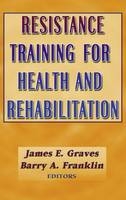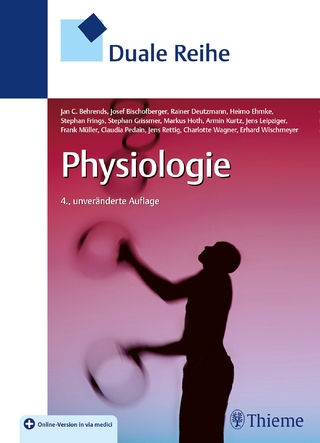
Resistance Training for Health and Disease
Human Kinetics Publishers (Verlag)
978-0-7360-0178-6 (ISBN)
- Titel ist leider vergriffen;
keine Neuauflage - Artikel merken
This text addresses the expanding role of resistance training for health, disease prevention and rehabilitation. It presents a rationale for including resistance training as a health benefit, pointing out positive changes in cardiovascular function, metabolism, coronary risk factors and psychosocial well-being for individuals with and without disease.
James E. Graves, PhD, is professor of exercise science and associate dean for graduate studies and research at Syracuse University where his accomplishments include the establishment of the Musculoskeletal Research Laboratory. He also developed the Center for Exercise Science at the University of Florida in Gainesville. Coauthor of The Lumbar Spine, Dr. Graves' research interests and experience include the prescription of resistance training for the prevention and rehabilitation of orthopedic problems. He earned his PhD from the University of Massachusetts at Amherst. Barry A. Franklin, PhD, has been director of the Cardiac Rehabilitation and Exercise Laboratories at William Beaumont Hospital in Royal Oak, Michigan, since 1985. He is also professor of family medicine at the University of Michigan at Ann Arbor, and he served as president of the American College of Sports Medicine from 1999 to 2000. A prolific writer, he has authored or coauthored more than 300 scholastic papers. He earned his PhD in physiology from Pennsylvania State University and a master's degree from the University of Michigan.
Part 1 Introduction to resistance training: rationale and review of current guidelines; metabolic responses and adaptation to resistance exercise; resistance training and the neuromuscular system; safety of resistance training - haemodynamic factors and cardiovascular incidents; resistance training - reduced training and long-term adherence; exercise prescription for healthy adults. Part 2 Special populations and conditions: resistance training for women; resistance exercise, ageing, and weight control; resistance training and musculoskeletal injury; elderly patients and frailty. Part 3 Chronic visceral diseases: resistance training in patients with coronary heart disease; hypertension and stroke patients; resistance training for organ transplant recipients; resistance training and chronic obstructive pulmonary disease; resistance exercise for patients with diabetes mellitus. Part 4 Chronic physical disabilities: resistance training for persons with physical disabilities; arthritis and related musculoskeletal disorders; resistance training for low back pain and dysfunction; osteoporosis.
| Zusatzinfo | 17 black & white illustrations, 6 black & white halftones |
|---|---|
| Verlagsort | Champaign |
| Sprache | englisch |
| Maße | 152 x 229 mm |
| Themenwelt | Medizin / Pharmazie ► Medizinische Fachgebiete ► Sportmedizin |
| Medizin / Pharmazie ► Physiotherapie / Ergotherapie ► Rehabilitation | |
| Studium ► 1. Studienabschnitt (Vorklinik) ► Physiologie | |
| ISBN-10 | 0-7360-0178-6 / 0736001786 |
| ISBN-13 | 978-0-7360-0178-6 / 9780736001786 |
| Zustand | Neuware |
| Haben Sie eine Frage zum Produkt? |
aus dem Bereich


